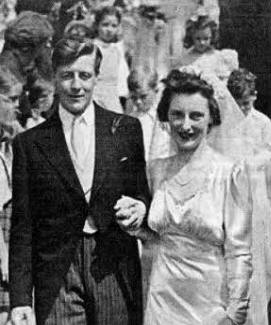The man who Survived when U boat captain defied Hitler
 IT
wasn't once-upon-a-time fairytales social worker Kate Thompson (nee Wilde)
grew up listening to at her father's knee.
IT
wasn't once-upon-a-time fairytales social worker Kate Thompson (nee Wilde)
grew up listening to at her father's knee.
Instead old seadog James Wilde, now 92, told the young Kate — now the wife of Crumlin family doctor Lawrence Thompson - the story of how during a wartime drama at sea he was plucked from the waves, not once but twice as his life was saved.
The former Royal Navy man is very much alive today as he recalls the 1942 incident involving his ship the troop carrier Laconia and the German submarine U156 that torpedoed her off the West African coast with the loss of 1,200 souls.
Petty Officer Wilde, who today is a great grandfather of four living in Hillsborough, is one of the few survivors of the crew of the stricken ship still around, nearly 69 years after the horror.
Kate has heard how all those years ago before she was born her dad drifted in shark-infested waters for five days and nights on a flimsy raft before being picked up.
And, yes, incredibly it was the second time James had been plucked out of the deep after the Laconia was holed and crippled and sinking fast.
Just the same James, originally from Droylsden, near Manchester, regards himself as one of the lucky ones. Of the 2,700 on board the converted cruise liner when the skipper of the German submarine Captain Werner Hartenstein gave the order to attack only 1,500 survived.
That there were any survivors at all of the carnage 900 miles south of
Freetown that
September 12 1942 is down to Hartenstein defying direct orders from Hitler
not to pick up victims and instead putting his submarine at risk as he
stayed on the surface saving the victims.
Wilde was pulled out of the heaving waters right enough by the German submariners, but just when he appeared to be safe on the U-156's deck he was forced to jump back into the waves when the submarine dived as an American bomber launched an attack on her, unaware of the real drama going on down below.
"Eventually I was lifted off my flimsy raft by the Vichy French and taken to Dakar as a prisoner of war with many other servicemen," he recalls.
He was liberated by the Americans and hospitalised in New York where he was treated for oil damage to his eyes.
There was rejoicing in the Wilde home months later when James, whom his parents believed had died in the mayhem, turned up on the doorstep in Droylsden alive and well.
The 20,000 ton Laconia, whose Captain Rudolph Sharp lost his life in the attack, was carrying 2,700 souls, most of them Italian prisoners of war with Polish guards as well as injured British soldiers and 87 women and children on a voyage from Egypt to England when she became a target for the German sub.
After she was torpedoed the ship listed badly and some lifeboats couldn't get clear, leaving their human cargo to drown. Hundreds of PoWs in the hold were killed instantly and as the Laconia's boilers burst sailors and prisoners jumped into the sea to be set upon by sharks.
Captain Hartenstein and his crew set about rescuing victims, regardless of nationality, most of whom were brought on board and given warm clothing.
But when the American B-24 bomber loomed into view the German skipper prepared to dive and Wilde and 100 other rescued victims on the deck had no alternative but to jump back into the sea from the already overcrowded submarine.
Several lifeboats were hit by the American raider, killing dozens of their occupants and the U-156 was slightly damaged before making good its escape.
James managed to scramble aboard the raft on which he drifted for five days before being picked up yet again.
Petty Officer Wilde, restored to health, was still in the Royal Navy, based at Sea Eagle in Londonderry six years later when he fell in love with a Wren called Marjorie Crooks, a cousin of the late Dean Sammy Crooks of St Anne's Cathedral in Belfast. They were married in 1948 and had a happy life together until Marjorie's death nine years ago, survived by daughters Jane, Biddy and Kate..
"My father played football for Derry City, rugby for North and was an accomplished boxer while he was in the Navy," says Kate.
And after returning to civvy street the former sailor made history when he was the first person to take a degree in Social Work at Queen's University, Belfast. He worked as a welfare officer in Antrim and became a chief social services officer and when he retired was awarded a CBE.
Ulster Star
18/02/2011

